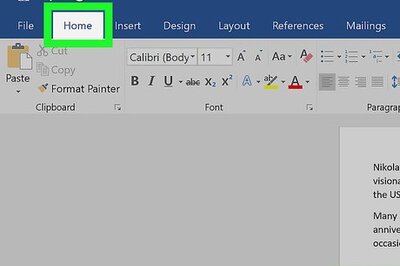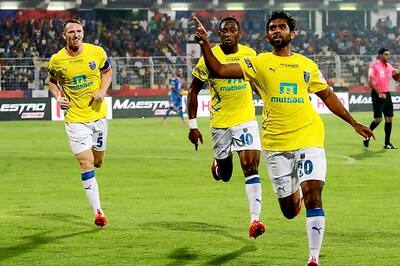
views
Many autumns ago, the celebrated auteur, Adoor Gopalakrishnan, was at the International Film Festival of India in Panaji with one of his movies. I think it was Naalu Pennugal or Four Women. A couple of days before the screening, the director found himself surrounded by journalists, who were keen on filing a story on him – asking him a battery of questions that ranged from what his impressions were about Goa (to which he answered with an unmistakable trace of irritation ‘but I have just arrived') to details about Naalu Pennugal.
The questions, as Adoor himself admitted later, were at best superficial and he suggested that the scribes watch his movie and come back with questions. None came! Perhaps, none even watched Four Women!
Sadly, this is the state of Indian cinema journalism today. Even before a film hits theatres – or starts streaming on a website – journalists are flooded with requests to do interviews of the cast and crew. In such cases, my reply has always been that I would prefer to interview a director or an actor only after I had seen his/her latest work. But I have invariably noticed that PR teams do the vanishing act once the movie is out. This could be a case of lethargy or bad planning or both. Or, that the director or actor concerned is nervous about the questions thrown at him/her post the screening.
Little wonder then, that, most of the interviews which appear in Indian print or on web editions tend to be lacking depth.
Compare this scenario with what happens in some of the other countries, especially when film festivals are on. I have never, ever, come across an occasion when there is either a media conference or an interview before a movie is shown to journalists. In fact, I have seen a few being ticked off at press meets if they are found to have not watched the film in question.
But no such thing ever happens in India. Rather, journalists are freely encouraged to interview directors and actors before their movies are out.
If this is unfair to artists, it is much more so to readers. A master may not be able to make a masterpiece every time or an actor may be unable to turn in a brilliant performance every time he/she steps in front of the camera. So, unless one sees their latest creation, an interview can become a meaningless exercise.
Unfortunately, Indian media – especially the electronic media – is hung up on the concept of getting there first, but in the bargain quality and accuracy go out of the window.
The less that is spoken about film reviews, the better it is. In recent years, I have seen journalists beginning their reviews half way through a movie. The smartphone is an ally here. A review certainly needs a period of reflection for informed opinion to emerge. We must understand that in the final analysis, their reviews are for readers – not for competing fellow journalists or publications. And a review is not a news story that needs to be broken post-haste.
(Gautaman Bhaskaran is an author, commentator and movie critic)




















Comments
0 comment